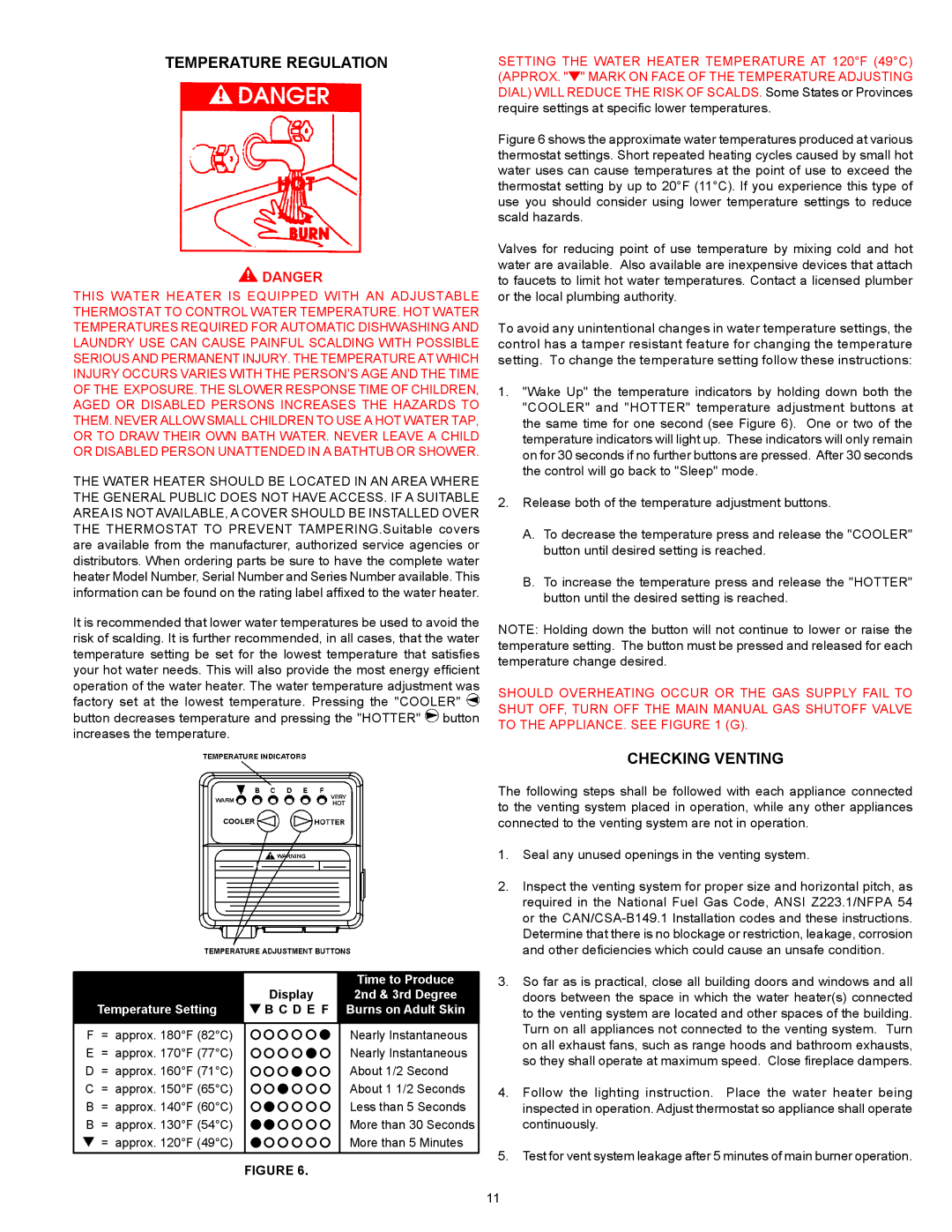BBCN375T754NV, Commercial Ultra Low NOx Gas water Heater specifications
The American Water Heater BBCN375T754NV is a standout in the realm of commercial water heating solutions, specifically designed to meet the demands of businesses requiring high efficiency and reliability. This ultra-low NOx gas water heater is engineered to reduce nitrogen oxide emissions, adhering to strict environmental regulations, which makes it an ideal choice for those conscious of their ecological footprint.One of the main features of the BBCN375T754NV is its impressive capacity of 75 gallons, making it suitable for various commercial applications, including restaurants, hotels, and manufacturing facilities. This model is built to provide a consistent and rapid supply of hot water, ensuring that users have access to the hot water they need without interruption.
The heater is equipped with a powerful gas burner system, providing an input of 375,000 BTUs per hour, which guarantees robust performance even during peak demand times. This high input rate allows for quick recovery and reduces waiting times for hot water delivery, an essential factor in maintaining operational efficiency.
In terms of technology, the BBCN375T754NV incorporates advanced combustion management systems that optimize gas consumption and efficiency. This ensures that the heater operates at maximum capacity while minimizing energy waste. Additionally, the unit features a robust insulation system designed to reduce heat loss, further contributing to its energy-efficient performance.
Another important characteristic of this water heater is its durable construction. Made from high-quality materials, including a glass-lined tank for corrosion resistance, the BBCN375T754NV is built to withstand the rigors of a commercial environment. The unit comes with a built-in anode rod to enhance longevity and minimize maintenance needs.
Furthermore, the heater includes an easy-to-navigate digital display that simplifies temperature adjustments and monitoring. This feature enables operators to easily manage the system settings, ensuring optimal performance and safety.
To sum up, the American Water Heater BBCN375T754NV is designed for those who need an efficient, reliable, and environmentally friendly solution to their commercial hot water requirements. With its high capacity, advanced technologies, and durable design, it stands as a robust option for businesses looking to enhance their water heating systems while adhering to environmental standards.

